As part of the Start-up Academy, Marlene Knoche was supported with start-up coaching from April 2021 to August 2022 on her path to self-employment as an illustrator in the field of science communication.
The website with information about her services can be found at www.sanguinik.de
We conducted the following interview with Marlene Knoche in August 2022.
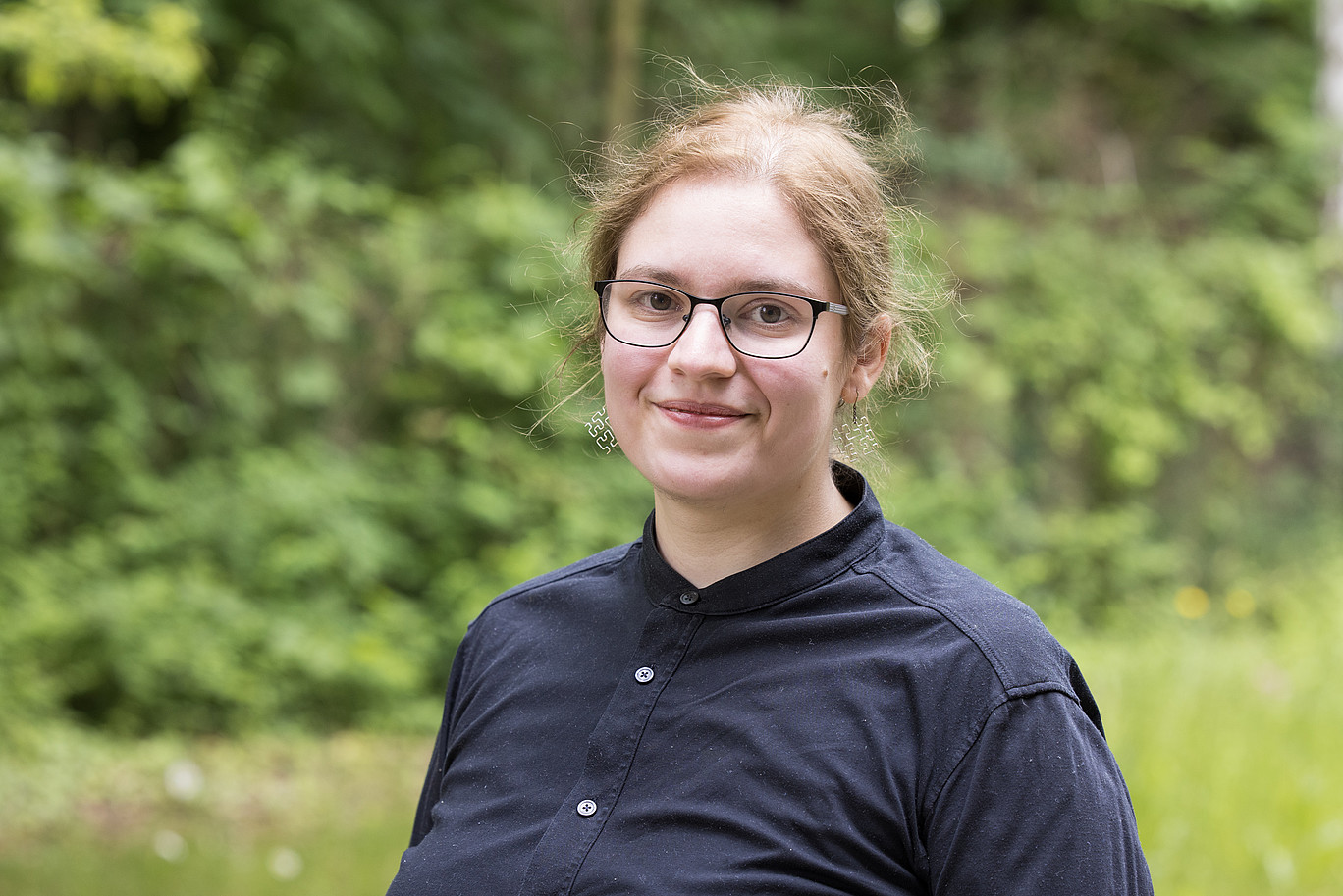
The short answer to this is probably: it runs in the family. I grew up in a family full of self-employed people, so I got to know entrepreneurial life with all its ups and downs very early on.
During my school years and my computer science studies, I also knew that one day I wanted to be able to make a living from my art, which until then had always been primarily a hobby for me.
The prospect of "four out of a hundred" artists making it through probably spurred me on rather than deterred me during my school internship in a studio in Zittau. Even then, I asked myself: "What if I was one of those four people?"
A degree in computer science and a few years working in software development later, I have now taken the final step and make a living from my art.
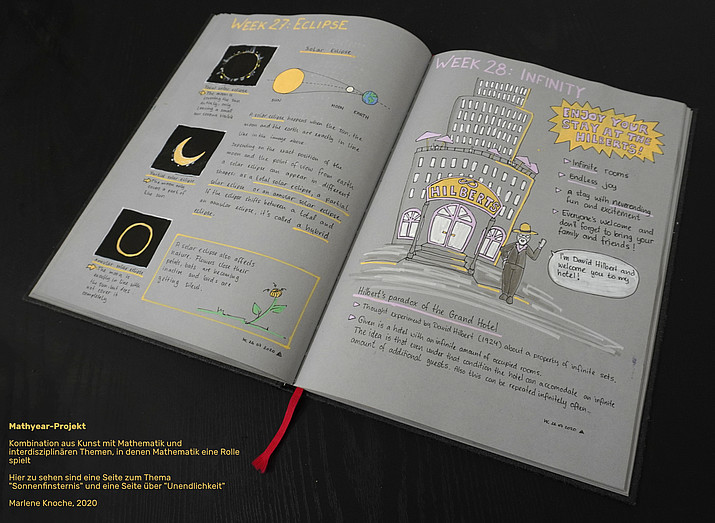
I work as a freelance illustrator and artist. My master's degree in computer science comes in very handy here, even if it doesn't sound so obvious at first. Thematically, I deal with mathematics, computer science and natural science in both my freelance work and my commissions, but also with motifs from nature in general. Accordingly, science communication is a field that is very close to my heart and that I would like to promote. I currently have a fellowship at the MIP Lab (an ideas workshop for science journalism in mathematics, computer science and physics) at the FU Berlin, where I am designing and implementing illustrations and stories for a mathematics computer game.
Another project that combines mathematics and art is a science art book entitled "Mathyear", which I am currently working on. It will be a mixture of sketchnotes and illustrations covering all sorts of topics where math plays a role.
I also regularly do livestreams on Twitch, in which I focus on art and math. In my opinion, the mixture of knowledge transfer and entertainment is a good tool to facilitate access to STEM topics. It's also fun for me, of course, and it's great to spend a few enjoyable evenings together with my community.
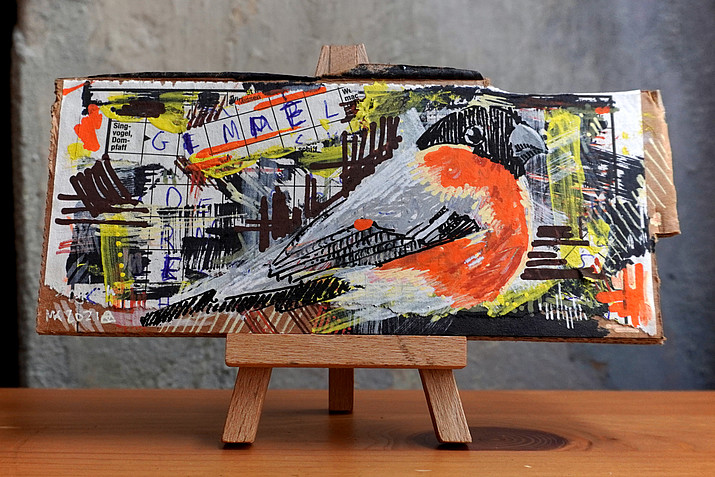
One of the best things was and is being able to implement my own ideas and projects without having to deal with large hierarchies or topics that are not suitable for me. Seeing that these ideas are also well received is of course an additional motivation. I also had some great customer projects that made it easier for me to get started.
Another aspect was that I had previously invested money in equipment and further training. On the one hand, this enabled me to implement my ideas and, on the other, it also put me under a certain amount of positive pressure to make good use of the investment. But the time I invested in start-up coaching and the associated exchange of ideas also spurred me on.
Bureaucracy, taxes and applications definitely took me a little longer than they should have in some places. On the one hand, this was due to the fact that I was always very careful not to make any mistakes - and that's not a bad thing, especially when it comes to the tax office. On the other hand, it was also a bit due to the fact that I had to do a lot at once and had to gather a lot of information from many places first.
Another hurdle was actually the money. In order to keep some security, I actually only practiced my art as a part-time job for the first few years. I used this time to build up a network, practise on my first client projects and, above all, save up a financial cushion that enabled me to take the final step towards self-employment.
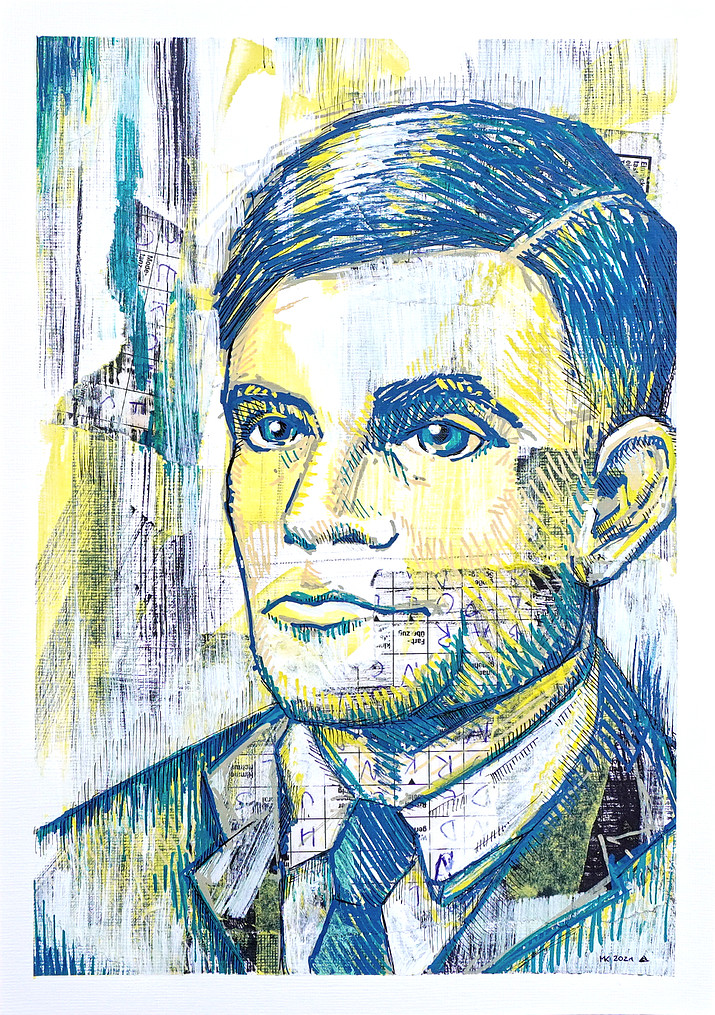
I got help from several places. My most intensive point of help on site was the university's start-up academy. I regularly exchanged ideas and topics there, attended exciting lectures and was able to take a lot away with me for my first year.
I also booked several weeks of coaching with two illustrators, during which they explained all the job-specific basics to me, from creating offers to finding target groups. I also created a professional portfolio of my work during the coaching, which I have been updating regularly ever since.
Another great help was and still is the exchange with colleagues in the illustration industry. Although almost all of them are self-employed, I actually experience a sense of cooperation rather than competition. This is also due to the professional association Illustratoren Organisation, which is very committed to the rights of my professional group and provides many helpful brochures and documents.
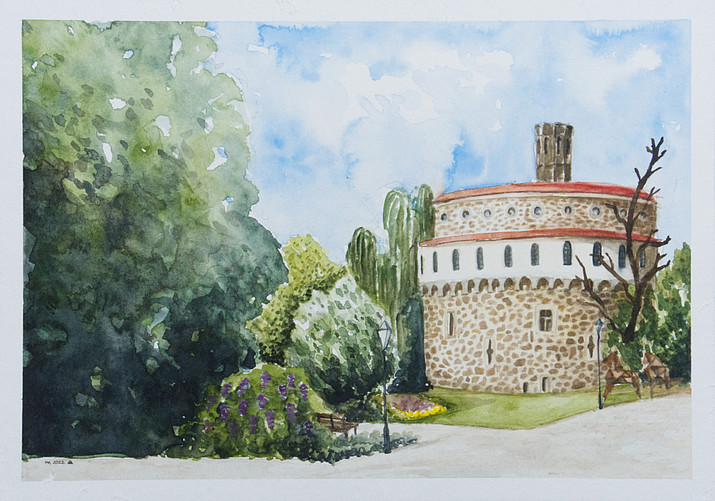
I would like to establish myself as an illustrator, particularly in the field of science communication, have my own studio and be able to realize other exciting art projects. There is an incredible amount of potential for this in Upper Lusatia in particular - if only because of the ever-growing research landscape. But I also see a growing need beyond the region to illustrate complicated topics more clearly with the help of illustrations. I also plan to continue exhibiting my freelance work and to publish my own art books.
My first tip is further training. If you get the chance to learn something new, that's the best way to develop yourself and your idea further. That's why I think it always makes sense to include a budget for this.
My second tip is networking. Exchanging ideas with like-minded people, potential clients or simply multipliers, who in turn lead you to other exciting people, is incredibly valuable. This also includes colleagues from the same industry and other founders. If you don't just see them as competition, synergies and a valuable exchange of experiences can arise that help both sides move forward.
My third tip is to take breaks. Good time management also includes regeneration phases, because at some point your energy resources will be exhausted. Techniques such as Pomodoro can help you to plan small breaks into your working day.
My last tip is aimed at creative professionals: There is the Künstlersozialkasse (KSK) and you should join it if you are eligible. I always come across other artists who have never heard of the KSK, but it's a great thing: they support you with the costs of health insurance, pension insurance and long-term care insurance.
